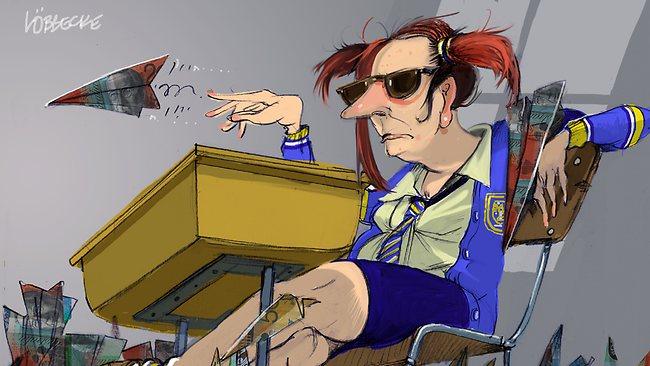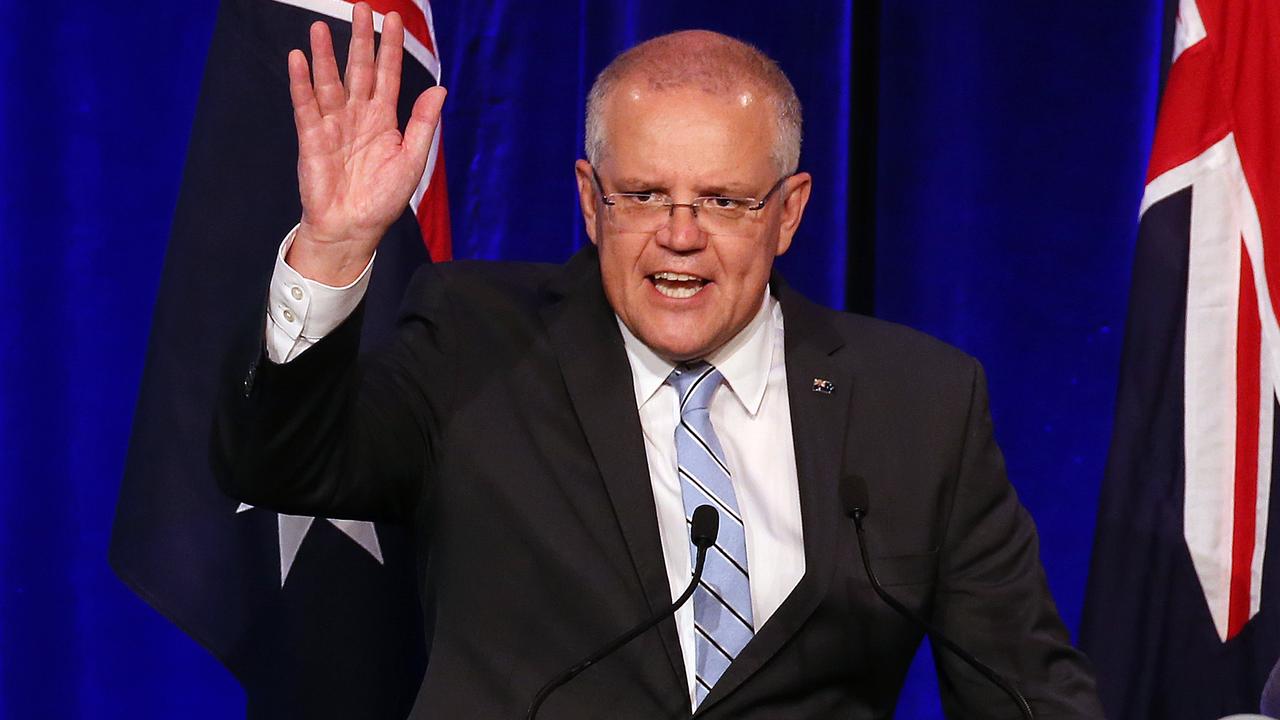
THE worst thing that can happen to any debate about reform is that it morphs into nothing more than a funding argument, as though more money automatically translates into reforming zeal. That is what has happened to the debate over the Gonski school education reforms.
The federal government likes to spruik its plan to inject billions of additional dollars into school education. Arguments as to why states should sign up, indeed why independent schools should support the package, invariably come back to the dollars, not the detail of reforms.
What we really need is a quality debate over the aspects of reform Gonski might help fund. After all, Australia's schools already have received significant cash injections since Labor came to office in 2007. However, during that time standards have lagged behind schooling systems in other OECD nations, indeed schooling systems in our own region.
The quality of new spending matters every bit as much as dollars committed.
Labor likes to argue that we have already had sufficient debate about education reforms, but we have not. Arguments over principal autonomy, curriculum design, how to deal with poor behaviour, as well as the best way to educate the educators, have not produced definitive conclusions locked into the package premiers are being asked to sign up to.
This should be at the heart of any debate over education standards. If more money goes into a new education bureaucracy to manage an increasingly centralised system - as the Gonski legislation stipulates - and if it simply gets used to top up the strained budgets of individual schools, it will not deliver on what the education system really needs: structural reform.
Labor deserves credit for doing something a Liberal government should have done long ago: tracking school performance, courtesy of the My School website. But identifying standards is far removed from knowing how to improve them. And it isn't much to show for an "education revolution", as promised ahead of the 2007 election.
Almost counter-intuitively, school education starts with university. That is where the teachers receive their training. If our teachers aren't universally of a high standard (and provided with incentives to keep on improving) no amount of extra money going into the schooling system will lift standards. If the teaching curriculum for education courses is poorly designed, those who graduate may not have the knowledge they need to pass information on to the next generation.
But the government is slicing money out of the tertiary sector (again without long overdue reforms). That will hit education as much as other university departments. And a government that has cycled through three tertiary education ministers this year alone is hardly demonstrating how to lead from the top. Labor's internal political problems have been a problem for the university sector, as they have been for small business, which has seen even more ministers come and go from the portfolio in recent times.
Entry standards for education courses are low, meaning we are not ushering the best and brightest into these courses. If Labor seriously wants to improve schools at the lower end of the socioeconomic spectrum, this is a key issue. It is a truism that the best teachers are likely to take jobs at schools that pay them better (elite private schools). Minimum entry standards would help ensure a better cohort of teaching graduates, thereby lifting standards in lower socioeconomic status schools.
Labor has argued for limited principal autonomy (almost an oxymoron), but it has not adequately embedded such practice into the Gonski legislation (there was more detail in David Gonski's original report). One of the reasons NSW signed on so quickly to the Gonski package was because it has already started on the path of reforms in these areas. It could do with the extra funds to keep going. But for states that have not done so, that is no barrier to receiving the extra money attached to Gonski. Cash injections in and of themselves risk being chiefly an increased burden on the taxpayer without tangible outcomes.
The federal government is rushing the debate on how best to fix our schools because the next election is looming and Julia Gillard is thinking more about her legacy than the legacy of a quality schooling system. That means she wants an agreement with the states before June 30, so that she can go into the election campaign claiming to have reformed the schools sector.
Short of coming to an agreement with the states, Gillard hopes to use the intransigence of Coalition state governments as a weapon against the federal Coalition. Opinion polls consistently tell us that voters favour Labor to deliver on education outcomes more than they do the conservatives - a good reason for the government to focus attention on education rather than the economy or national security.
Undoubtedly two of the most important ways in which the schooling system needs reform is improvements in discipline and curriculum design. Teachers are not adequately supported when it comes to dealing with misbehaving students. And the design of the curriculum does not adequately teach students the basics of what they should know by the time they reach Year 12.
There are a host of issues in society where I have advocated liberal positions: support for gay marriage, market-based workplace relations laws, even some relaxing of drug laws. But a conservative approach to education in schools is the best way to enhance learning. Strong discipline of adolescents who impinge on the learning of others with their conduct. A curriculum that returns to the basics of written expression, mathematics and science. If we don't get these basics right, billions of extra taxpayer dollars going into education will be of little use.
Last Sunday on Sky News's Australian Agenda, Brian Schmidt, who shared the 2011 Nobel Prize in Physics, said the teaching of science in schools was falling off a cliff. If that isn't worrying commentary from a highly respected voice, I don't know what is. From marking the essays of first-year university students (supposedly the top of the class at school), I can tell you too many have a limited grasp of how to express themselves in writing.
The cycle of educational failure is all the more apparent when we consider that some of the easiest courses to enter are teaching courses. More so given the pressure on academics to pass students to maintain the viability of their courses. This is a dangerous mix into which to be throwing billions of additional dollars without having laid out reforms that solve problems in not only the schooling sector but right across the higher education sector as well.
Peter van Onselen is a professor at the University of Western Australia.



